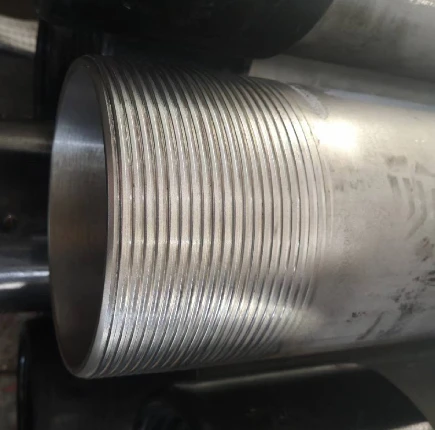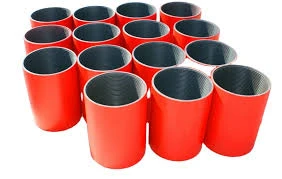- Afrikaans
- Albanian
- Amharic
- Arabic
- Armenian
- Azerbaijani
- Basque
- Belarusian
- Bengali
- Bosnian
- Bulgarian
- Catalan
- Cebuano
- Corsican
- Croatian
- Czech
- Danish
- Dutch
- English
- Esperanto
- Estonian
- Finnish
- French
- Frisian
- Galician
- Georgian
- German
- Greek
- Gujarati
- Haitian Creole
- hausa
- hawaiian
- Hebrew
- Hindi
- Miao
- Hungarian
- Icelandic
- igbo
- Indonesian
- irish
- Italian
- Japanese
- Javanese
- Kannada
- kazakh
- Khmer
- Rwandese
- Korean
- Kurdish
- Kyrgyz
- Lao
- Latin
- Latvian
- Lithuanian
- Luxembourgish
- Macedonian
- Malgashi
- Malay
- Malayalam
- Maltese
- Maori
- Marathi
- Mongolian
- Myanmar
- Nepali
- Norwegian
- Norwegian
- Occitan
- Pashto
- Persian
- Polish
- Portuguese
- Punjabi
- Romanian
- Russian
- Samoan
- Scottish Gaelic
- Serbian
- Sesotho
- Shona
- Sindhi
- Sinhala
- Slovak
- Slovenian
- Somali
- Spanish
- Sundanese
- Swahili
- Swedish
- Tagalog
- Tajik
- Tamil
- Tatar
- Telugu
- Thai
- Turkish
- Turkmen
- Ukrainian
- Urdu
- Uighur
- Uzbek
- Vietnamese
- Welsh
- Bantu
- Yiddish
- Yoruba
- Zulu
Led . 26, 2025 02:08
Back to list
Tubing Coupling
Steel pipe couplings are essential components in any piping system, performing the critical role of connecting two segments of pipe while ensuring the system’s integrity. Their functionality is vital in industries ranging from plumbing and oil & gas to construction and beyond. Understanding the features, applications, and selection criteria for steel pipe couplings can significantly enhance your project's reliability and efficiency.
Given the broad applicability and critical nature of steel pipe couplings, it's important to source them from reputable manufacturers who can provide documentation concerning compliance with industry standards. This increases trustworthiness as it assures that the couplings have undergone rigorous testing and quality assurance processes. Working with suppliers who provide detailed product data sheets and who are transparent about their manufacturing processes fosters a sense of security and confidence in the products you are purchasing. Upon installation, it is vital to ensure that the couplings are correctly fitted and that the connecting pipes are aligned precisely. Misalignment can lead to uneven stress distribution, which can compromise the coupling’s effectiveness and may eventually lead to system failure. Regular maintenance checks on the piping system, including inspection of the couplings, can preemptively identify potential issues before they result in significant damage. In addition to the technical specifics of the product, the practical installation of steel pipe couplings demands expertise. Professional installation teams that are experienced with high-pressure and high-temperature environments should handle the installation to minimize the risk of improper coupling, which can drastically reduce the efficacy of even the highest quality products. In conclusion, steel pipe couplings represent a small but mighty component of industrial piping systems. By carefully selecting the appropriate type, grade, and size, and by ensuring installations adhere to industry best practices, you can significantly enhance the operational integrity of your system. As the experts always say, investing in the right couplings from credible sources is a crucial step that ensures the longevity and efficiency of your project.


Given the broad applicability and critical nature of steel pipe couplings, it's important to source them from reputable manufacturers who can provide documentation concerning compliance with industry standards. This increases trustworthiness as it assures that the couplings have undergone rigorous testing and quality assurance processes. Working with suppliers who provide detailed product data sheets and who are transparent about their manufacturing processes fosters a sense of security and confidence in the products you are purchasing. Upon installation, it is vital to ensure that the couplings are correctly fitted and that the connecting pipes are aligned precisely. Misalignment can lead to uneven stress distribution, which can compromise the coupling’s effectiveness and may eventually lead to system failure. Regular maintenance checks on the piping system, including inspection of the couplings, can preemptively identify potential issues before they result in significant damage. In addition to the technical specifics of the product, the practical installation of steel pipe couplings demands expertise. Professional installation teams that are experienced with high-pressure and high-temperature environments should handle the installation to minimize the risk of improper coupling, which can drastically reduce the efficacy of even the highest quality products. In conclusion, steel pipe couplings represent a small but mighty component of industrial piping systems. By carefully selecting the appropriate type, grade, and size, and by ensuring installations adhere to industry best practices, you can significantly enhance the operational integrity of your system. As the experts always say, investing in the right couplings from credible sources is a crucial step that ensures the longevity and efficiency of your project.
Next:
Latest news
-
Tubing Pup Joints: Essential Components for Oil and Gas OperationsNewsJul.10,2025
-
Pup Joints: Essential Components for Reliable Drilling OperationsNewsJul.10,2025
-
Pipe Couplings: Connecting Your World EfficientlyNewsJul.10,2025
-
Mastering Oilfield Operations with Quality Tubing and CasingNewsJul.10,2025
-
High-Quality Casing Couplings for Every NeedNewsJul.10,2025
-
Boost Your Drilling Efficiency with Premium Crossover Tools & Seating NipplesNewsJul.10,2025
Related Products







